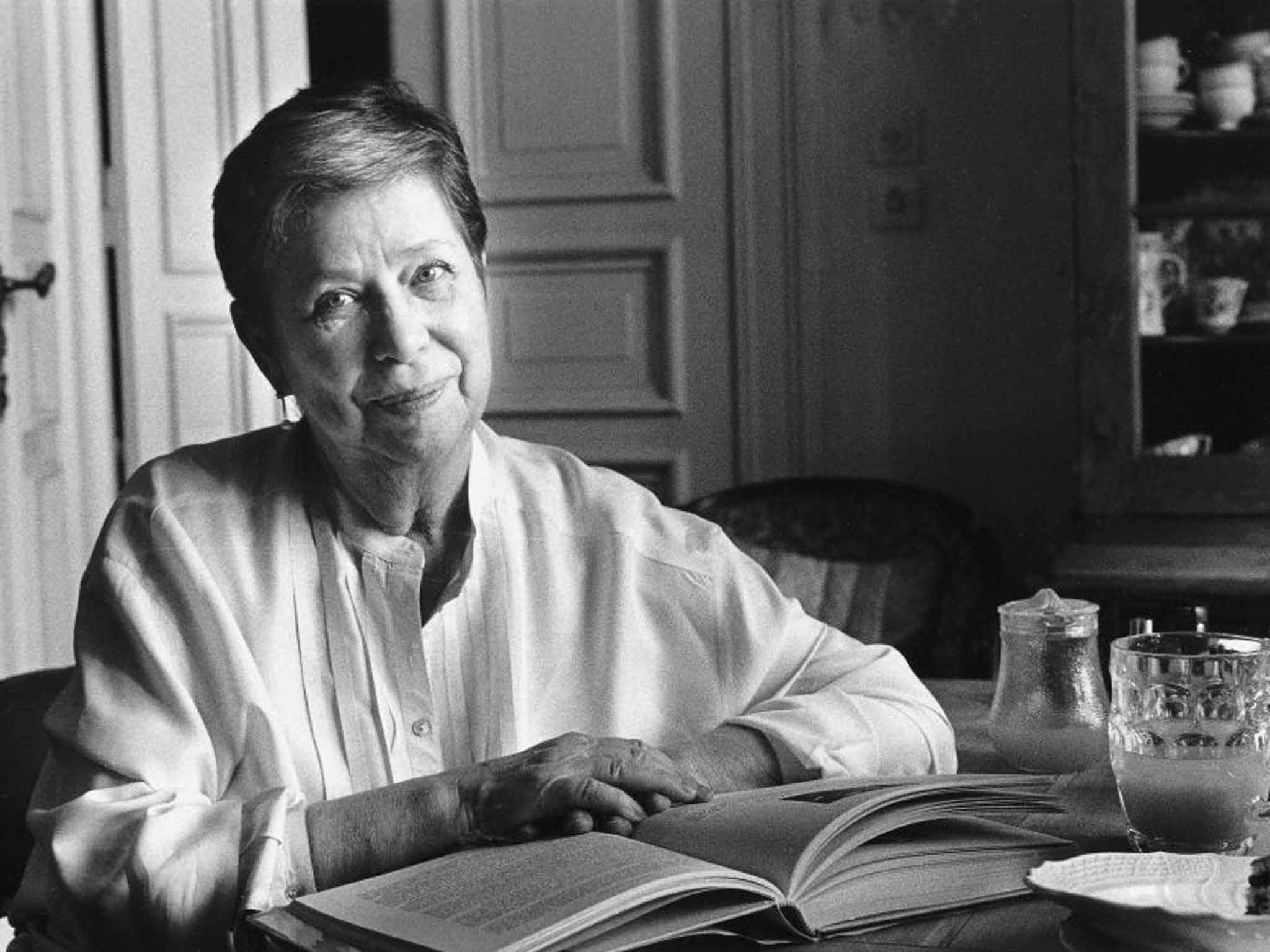Barbara Brecht-Schall: Actress with the Berliner Ensemble who zealously guarded the literary legacy of her father, Bertolt Brecht
Under the stage name Barbara Berg she played principal roles in Playboy of the Western World in translation and her father's Mother Courage and her Children

Literary estates are renowned for switching on and switching off the flow and availability of works. It might involve permissions and vetoing, contracts and copyright duration changes, and how to irrigate the estate's finances. Bertolt Brecht's estate, with the writer's daughter Maria Barbara Brecht-Schall at the tiller, steered a remarkable course through those stormy seas. For her it was never a simple matter of maximising revenue and royalties. When it came to protecting her father's legacy – Die Zeit's Tilman Krause deftly described her as its Lordsiegelbewahrerin, or Lord Privy Seal – she guarded the flame with prickly passion.
In November 1922 her father married his first wife, the Austrian actress and opera singer Marianne Zoff. Their daughter, Hanne Marianne, was born in March 1923; she went into the theatre under the name Hanne Hiob.
The marriage did not last. As Hiob reflected in adulthood, women were flinging themselves at Brecht. And as David Barnett writes in A History of the Berliner Ensemble (2015) about the playwright's later escapades, "Brecht had been liberal with his affections at the BE (as he had indeed been earlier in his life)…"
The year after Hanne's birth, Brecht met the Vienna-born actress Helene "Helli" Weigel in Berlin. The relationship took off, and a son, Stefan was born in 1924. In 1927 Brecht and Zoff divorced and he married Weigel in 1929. Between the premieres of Rise and Fall of the City of Mahagonny in March 1930 and the didactic play The Decision, sometimes referred to as The Measures Taken, in December, Barbara Marie Brecht was born in Berlin.
She described her father as "a Sunday papa" who lived for his work. "He was very charming, very funny and great fun to talk to but he didn't wash enough and he smelt of cigars." The Nazis had the playwright in their sights and the family fled to Prague in February 1933. The timing was good. The next day the Reichstag burnt down and new horrors were unleashed.
Zigzagging from Prague to Vienna to Zurich, the family made Svendborg on the Danish island of Funen their temporary place of exile. Eventually, via Sweden, Helsinki, Moscow and Vladivostok, the Brechts fetched up in California in July 1941.
With the rise of McCarthyism, Brecht was subpoenaed before the House Un-American Activities Committee in October 1947. Returning to Europe, to the new East Berlin, Brecht and Weigel founded the Berliner Ensemble in East Berlin in January 1949. Barbara became part of the company, which is still based on Berlin's Schiffbauerdamm. Her husband, Ekkehard Schall, was the company's leading man, defining roles such as Arturo Ui in the 1958 production of The Resistible Rise of Arturo Ui. He was a character with Hitlerian parody potential, as Leonard Rossiter notably demonstrated in the National Theatre production in 1969.
Brecht-Schall was a self-confessed Bühnentier, or stage animal, and as an actress her most notable appearances were with the Ensemble. Under the stage name Barbara Berg she played principal roles in such productions as Playboy of the Western World in translation and her father's Mother Courage and her Children. She also appeared in films made in the GDR from the 1950s into the post-Reunification 1990s.
Following Weigel's death in May 1971 Stefan, Barbara and Hanne took over the administration of the Brecht estate – Brecht-Erben GmbH – as its heirs (Erben); Stefan and Hanne both died in 2009.
Barbara had a reputation for knottiness when it came to staging her father's plays, exercising her power to stop productions. When the dramatist-director Einar Schleef announced his intention to stage Galileo as a ballet for naked men she stepped in, saying, "Seven naked cardinals on the stage ramp – I don't need that." Early this year 2015 Frank Castorf's proposed production of Baal was vetoed. For all that, she kept the flame burning bright. Latterly she oversaw the translation of Brecht's poetry into English, a programme that continues.
For much of her life she lived in Buckow in Mark Brandenburg, where on the shores of the Schermützelsee the Brecht-Weigel-Haus is a combination of museum, monument and a venue for literary and musical events. She could be seen pottering around, a symbol of continuity with a bygone Brechtian era and a reminder of the enduring relevance of her father's work in the present. She is survived by her daughters Jenny Schall-Dizdari and Johanna Schall, respectively a costume designer and an actress-producer.
Maria Barbara Brecht, actress, costume designer and custodian of the Brecht estate: born Berlin 28 October 1930; married 1961 Ekkehard Schall (died 2005; two daughters); died Berlin 31 August 2015.
Join our commenting forum
Join thought-provoking conversations, follow other Independent readers and see their replies
Comments